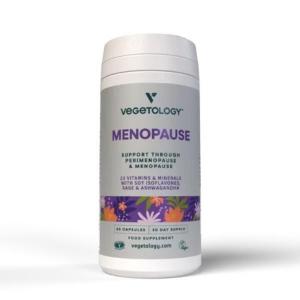
Why It Is Important to Regularly Supplement Iron During Pregnancy

Why Iron is Crucial During Pregnancy and How to Supplement It Properly
Pregnancy is a time when an incredible number of changes occur in a woman's body. As the baby grows, so does the need for certain key nutrients — and one of the most important is iron. Iron deficiency during pregnancy can have serious consequences not only for the mother but also for the child. So, how can you supplement iron properly during pregnancy, especially in the 3rd trimester, and when is it appropriate to stop its supplementation?
Why Iron is So Important During Pregnancy
Iron is essential for the production of hemoglobin, the protein in red blood cells that carries oxygen to all parts of the body. During pregnancy, a woman's blood volume increases by up to 50%, meaning the body needs much more iron than usual. Iron not only supports the proper development of the fetus but also protects the mother from anemia, which can lead to fatigue, weakened immunity, premature birth, or low birth weight of the baby.
In the 3rd trimester, the need for iron peaks. At this stage, the body stores iron to support the rapidly growing fetus and to prepare for blood loss during childbirth. According to experts from the World Health Organization, the daily intake of iron during pregnancy should be around 27 mg, which often cannot be covered by diet alone.
How to Recognize That the Body Needs More Iron
Symptoms of iron deficiency during pregnancy can be subtle. The most common symptoms are fatigue, pale skin, shortness of breath, headaches, or dizziness. In some cases, a doctor may diagnose anemia only based on blood tests. Therefore, regular monitoring of hemoglobin levels during prenatal check-ups is so important.
A typical example from practice might be the story of Ms. Lenka, who began to experience extreme fatigue and dizziness during her third trimester. After consulting with a gynecologist and conducting blood tests, she found that her iron levels were well below recommended values. By starting an appropriate dietary supplement, she quickly solved the problem, and her pregnancy then proceeded without complications.
How to Supplement Iron During Pregnancy Naturally and Through Supplements
Iron supplementation during pregnancy can occur in two main ways: diet and supplementation. The ideal approach is a combination of both.
Foods Rich in Iron:
- Beef, chicken liver, fish
- Legumes (lentils, chickpeas, beans)
- Leafy vegetables (spinach, chard)
- Nuts, seeds, dried fruits (especially apricots and raisins)
- Whole grain products
It is worth mentioning that there are two types of iron — heme (from animal sources) and non-heme (from plant sources). Heme iron is more easily absorbed by the body. To help the body absorb plant-based iron more effectively, it is recommended to combine its intake with foods rich in vitamin C, such as citrus fruits, peppers, or broccoli.
Try our natural products
If diet is not enough, supplements come into play. And here comes the question: what type of iron is best during pregnancy? Forms of iron with higher bioavailability, such as bisglycinate or fumarate iron, are recommended as they are gentler on the stomach and less likely to cause side effects like constipation or nausea.
When choosing, it is always advisable to consult with a doctor or pharmacist regarding the appropriate type and dosage. Some women may need individually adjusted doses depending on their health status and ferritin levels (iron stores).
Iron in the 3rd Trimester
In the third trimester, the need for iron is highest, as the fetus is building its own iron stores for the first six months of life. Inadequate iron supplementation during this period could lead to the baby being born with lower iron levels, which may affect cognitive and motor development.
During the third trimester, there is also a higher risk of complications associated with anemia. A study published in the journal The Lancet warns that pregnant women with severe anemia have a significantly higher risk of premature birth and postpartum complications. Therefore, it is essential not to neglect any signs of iron deficiency in this phase of pregnancy and regularly check blood counts.
When and How to Stop Iron in Pregnancy
The question of when to stop iron supplementation during pregnancy is as important as when to start it. If iron levels were normal before and during pregnancy, some doctors recommend stopping iron supplements after the third trimester of pregnancy, just before delivery. Others recommend continuing at least through the postpartum period, especially if the woman loses a significant amount of blood during childbirth.
It is important to realize that stopping iron supplementation without consulting a doctor is not recommended. High doses of supplementation without need can cause constipation, nausea, or even organ damage. Deciding when to stop iron should always be done by a specialist based on current blood tests.
In the case of a planned cesarean section or the risk of greater blood loss during delivery, continuing iron supplementation may even be necessary for faster recovery of the body.
Tips for Gentle Iron Supplementation
If you want to supplement iron as effectively as possible and without unnecessary problems, try taking it on an empty stomach or with something light containing vitamin C – this will help with absorption. Conversely, avoid dairy products, coffee, and tea, which inhibit its effect. Instead of one large dose, you can spread the iron into smaller portions throughout the day. And if it doesn't agree with your digestion, opt for chelated iron – it's gentler on the body.
A small example from everyday life: Pregnant Petra struggled with stomach problems after taking regular iron. After discussing with her doctor, she switched to bisglycinate iron, which her body tolerated much better, and added a daily glass of orange juice for better absorption. Her blood test results and subjective feelings improved significantly within a few weeks.
As the famous quote goes: “Our health is our greatest wealth.” In pregnancy, this is doubly true.
Proper care of iron levels during pregnancy, especially in the third trimester, is an investment not only in the child's health but also in one's own well-being. Trust in the body, listening to its signals, and cooperation with doctors are the keys to a smooth pregnancy and childbirth.




